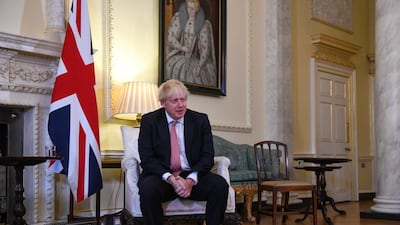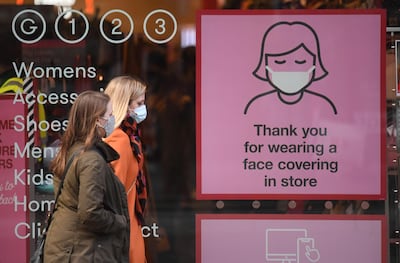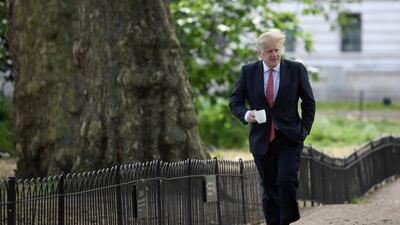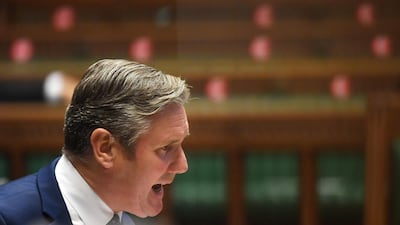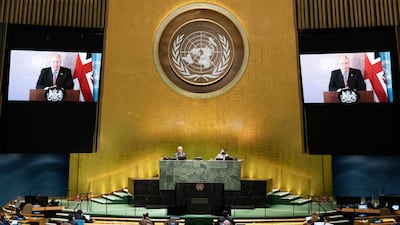The British Prime Minister Boris Johnson took a second class degree in Classics at Oxford and will be familiar with the Latin phrase “annus mirabilis”, or “wonderful year”.
In his “annus mirabilis”, 2019, Mr Johnson achieved his heart’s desire – becoming prime minister. In last December’s General Election, he annihilated his opponents and destroyed rebels in his own party by winning an 80 seat majority. He triumphed because he promised to “Get Brexit Done.” He then threatened the EU that he would walk away with “No Deal” unless they offered him “fantastic” terms, which meant the UK could “have our cake and eat it”.
Mr Johnson had enthusiastic support from the US President, which meant he could perhaps secure a rapid US-UK post-Brexit trade deal and reinvigorate the “special relationship”. Donald Trump praised Johnson publicly in terms even more glowing than he had used to describe North Korea’s leader Kim Jong-un.
Mr Trump said: “We have a really good man who’s going to be the prime minister of the UK now. He’s tough and he’s smart. They’re saying, ‘Britain Trump’. They call him ‘Britain Trump’ and people are saying that’s a good thing.”
If 2019 was Mr Johnson's “annus mirabilis” – he even managed to get divorced and father a new child – 2020 is Mr Johnson’s “annus horribilis”, a terrible year in which the wheels have come off the Johnson bandwagon. Brexit isn’t done. Mr Johnson set another self-invented deadline for finalising negotiations by mid-October.
Maybe something extraordinary this week will produce a rapid deal, or maybe not. Then the coronavirus pandemic exposed his personal as well as policy failures. He doesn’t do details, often doesn’t listen to expert advice, and has no clearly defined ideology or plan.
Instead Boris Johnson has a style, bragging like Donald Trump about his “world-beating” successes, which never quite exist in real life. He claimed UK coronavirus testing in 2020 would be “world-beating”. It isn’t. It is expensive and incompetent.
He himself caught the virus. The UK death rate is high. The arrival of a second wave has resulted in open rebellion from mayors in some of England’s great cities who say they are fed up with Mr Johnson’s chaotic “leadership”.
Mr Johnson’s cronies have been appointed to top positions. Companies with no experience in dealing with a viral epidemic have been awarded lucrative government contracts. TV comedians poke fun at him for mixed messages and an antiquated style of speaking.
Opinion polls now show the British Prime Minister is less popular than Labour's leader Kier Starmer. Conservative Members of Parliament are privately very uneasy that Mr Johnson is adrift in his high office.
It is bad but all the signs are that the “annus horribilis” could get even worse. Mr Johnson has shown no coherent plan for bearing down on coronavirus while the British economy is set to weaken still further.
On top of the pandemic, the self-inflicted wound of Brexit means that after four and a half years of blathering, the UK could face severe trade dislocation, confusion at British ports, a weakening of the currency and inevitably more job losses.
It appears that the Prime Minister has three options. The first is that Britain seeks yet another extension for more talks, but Brexit supporters will be furious at any further delay.
Option two is that to get a last minute deal Mr Johnson will – as he has done before – concede whatever the EU demands yet present it as a "fantastic success". Staunch Brexit campaigners like Nigel Farage will be even more furious and call it a "sell-out".
The third possibility is that there will be no deal, which will do massive self-inflicted damage to the UK economy. While Brexit hardliners may rejoice at No Deal, Mr Johnson will be faced with leading a government through years of economic turmoil, while financing the cost of existing economic damage from coronavirus. That presumably means unpopular tax rises.
As the former prime minister Tony Blair once put it to me, Mr Johnson ultimately must choose between “a pointless Brexit or a painful Brexit”, a deal which does profound damage to the British economy, or one which aligns Britain with Europe, does less damage but does indeed seem pointless.
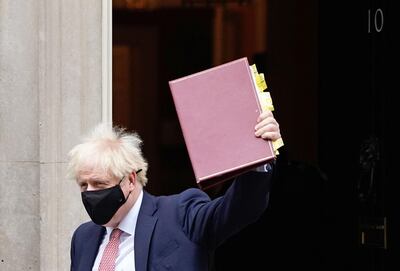
If 2020 was bad, next year could be even worse. Polls suggest that in January 2021, it will be Joe Biden who is inaugurated President of the US. “Britain Trump” is already desperately trying to cosy up to “America Biden”, but given the way Mr Johnson derided the Obama presidency when Joe Biden was vice president, a warm Johnson-Biden relationship seems unlikely.
And so, out of the EU, probably out of favour with the White House, Mr Johnson might find British voters, after a terrible year, come to learn another Latin phrase in 2021 – “annus exitiabilis” or a “catastrophic year”.
Gavin Esler is a UK columnist for The National
